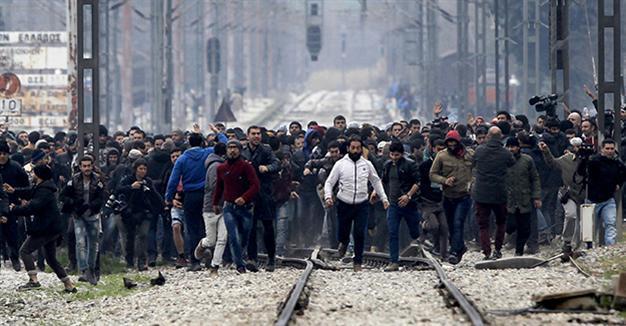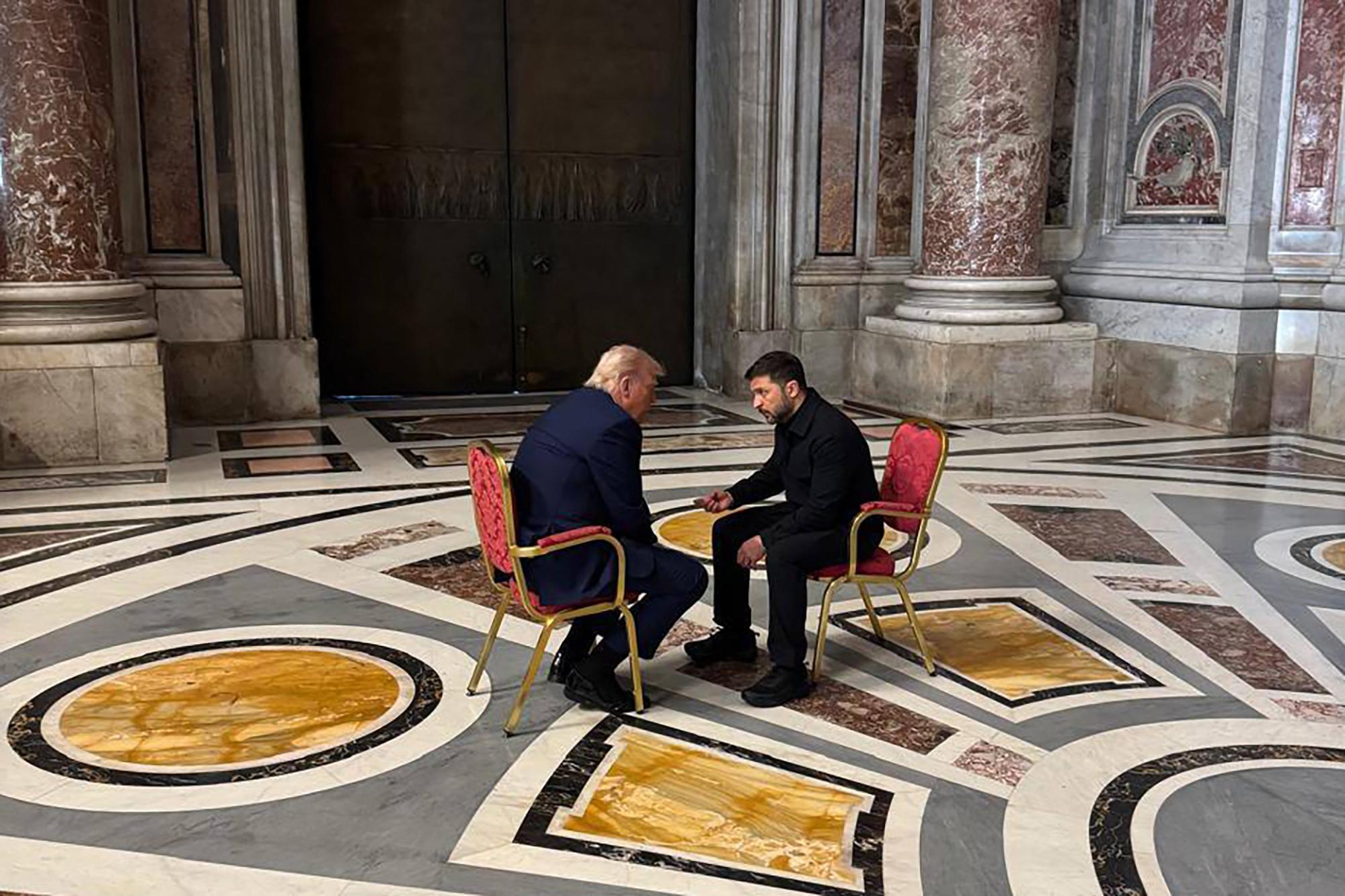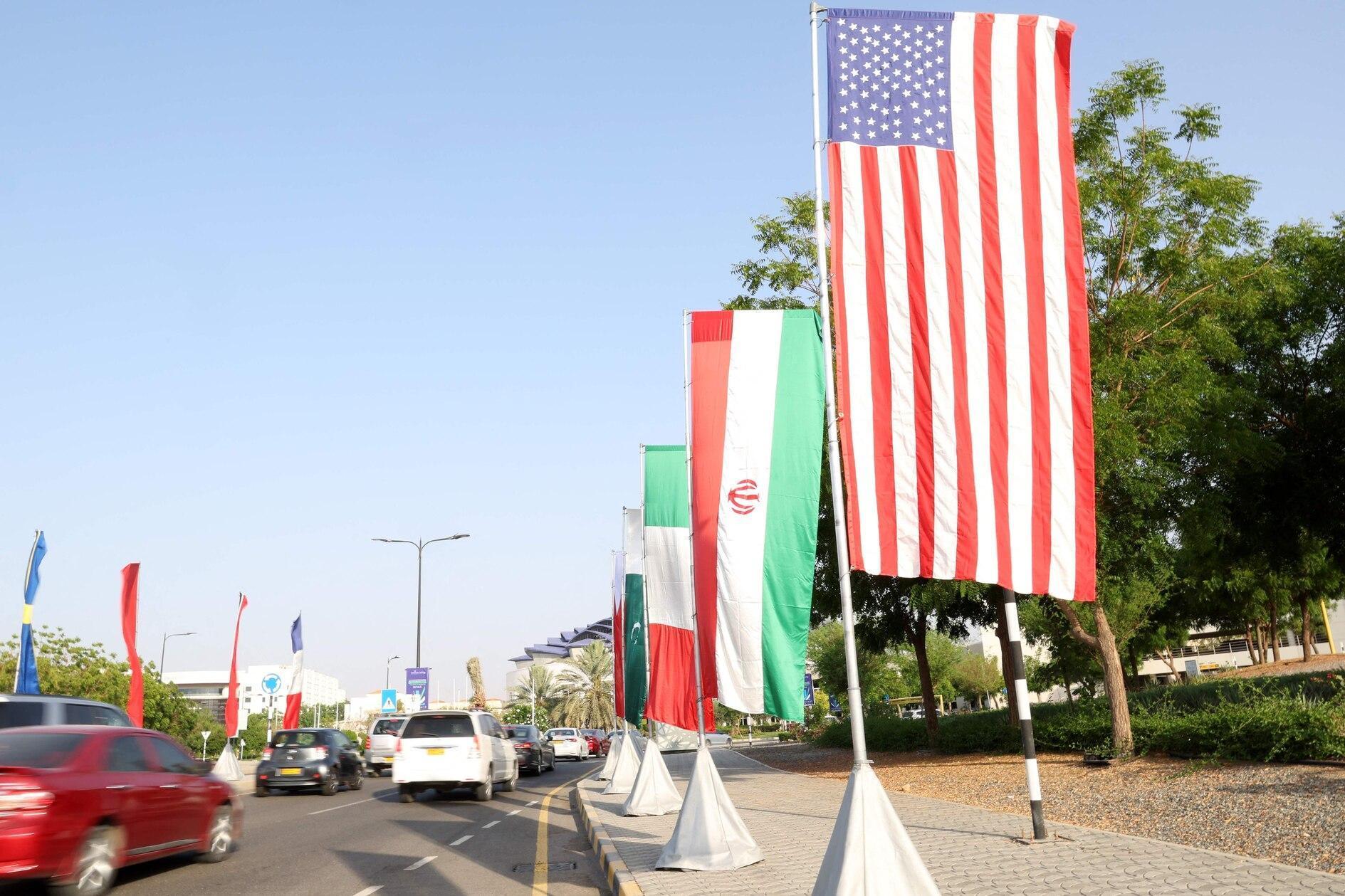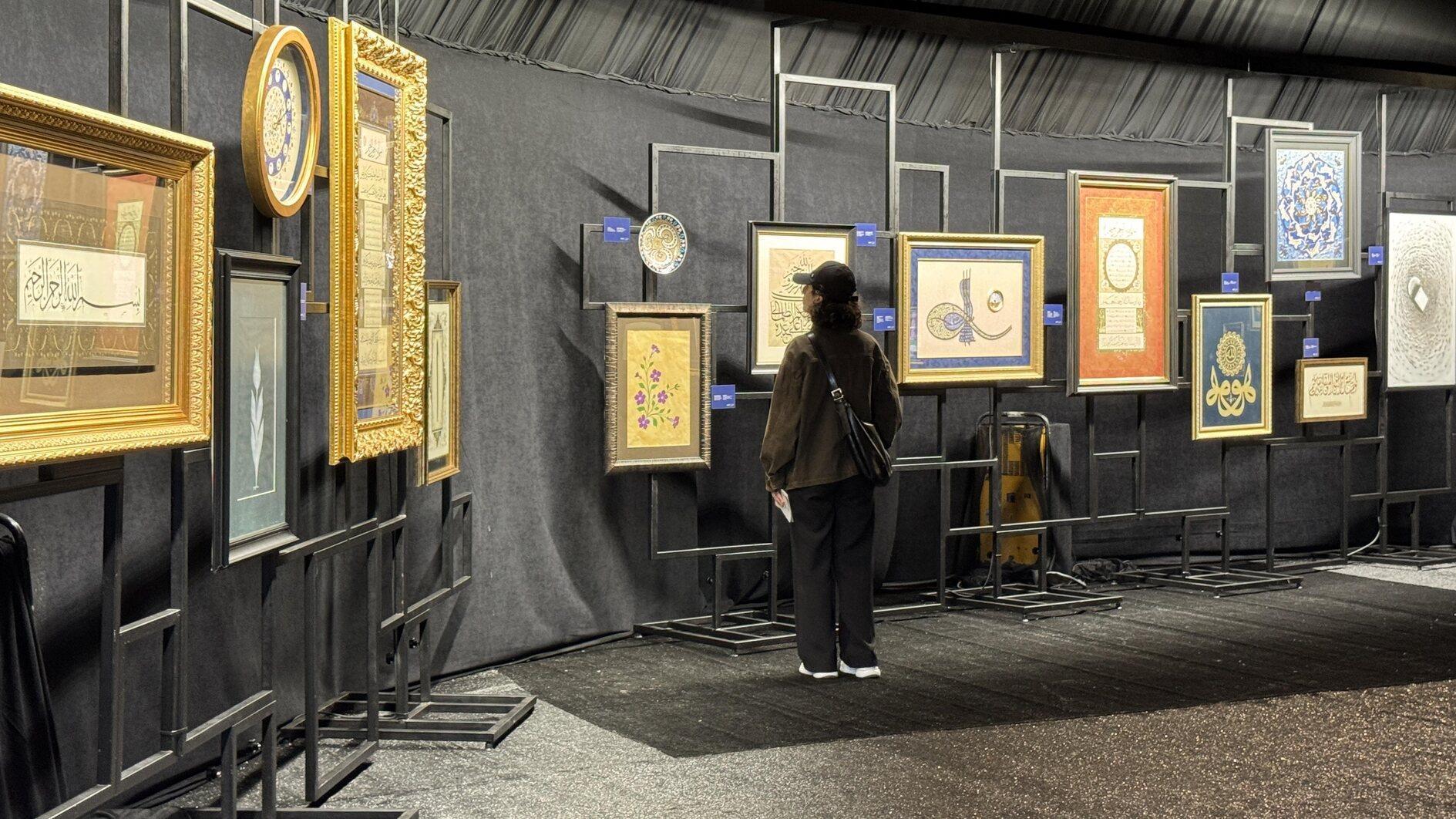Migrants try to storm Greece-Macedonia border fence
IDOMENI, Greece - Agence France-Presse

In this photo taken from the Macedonian side stranded refugees and migrants in the northern Greek village of Idomeni approach the Greek-Macedonian border as they try to enter Macedonia on Monday, Feb. 29, 2016. AP Photo
Hundreds of refugees on Feb. 29 tried to break through a border fence into Macedonia from Greece, where more than 7,000 people are stranded, as anger mounts over barriers to entry imposed on migrants flooding into Europe.In a sign of deepening divisions within Europe, German Chancellor Angela Merkel lashed out at Austria and Balkan states for introducing tight limits on migrant entries, leaving Greece with a growing bottleneck as refugee boats continue to arrive from Turkey.
And Macedonian President Gjorge Ivanov warned that once Austria reaches its cap of a maximum 37,500 migrants transiting through this year, the refugee route through the Balkans will have to close.
At Idomeni on the frontier, Macedonian police fired tear gas as some 300 migrants forced their way through a Greek police cordon and raced towards a railway track between the two countries.
"Open the borders!" they shouted as a group of men used a metal signpost to bring down a section of barbed wire fencing, prompting police to fire volleys of tear gas and block them from crossing.
At least 30 people, many of them children, requested first aid in the stampede that ensued, the charity Doctors Without Borders (MSF) said. Authorities said a Macedonian policeman had also been hurt and had to be hospitalised.
The protest occurred several hours after Macedonia allowed just 300 Syrians and Iraqis to cross.
With Austria and Balkan states capping the numbers of migrants entering their soil, there has been a swift build-up along the Greece-Macedonia border with Athens warning that the number of people "trapped" could reach up to 70,000 in March.
The UN's rights chief criticised a "rising roar of xenophobia" towards migrants.
"To keep building higher walls against the flight of these desperate people is an act of cruelty and a delusion," Zeid Ra'ad Al Hussein said.
Amnesty International criticised the situation at Idomeni, branding it "the result of a shameful spate of discriminatory border closures".
As the bottleneck showed little sign of easing, Merkel slammed the restrictions and pointed the finger at Austria, whose clampdown on February 19 triggered a domino effect in the Balkans.
Greece must not be allowed to "plunge into chaos", she said.
The spate of border closures was sparked by Austria's announcement it would accept no more than 80 asylum claims per day and that a maximum of 3,200 migrants would be allowed to transit daily.
EU members Slovenia and Croatia, along with Serbia and Macedonia, swiftly responded to the clampdown further up the migrant route by imposing a limit of 580 migrants entering per day.
"Because Austria decided on a limit of 80 per day, and not one more, we have reached today's situation," Merkel told public broadcaster ARD on Sunday.
"When one insists on his border, the other suffers. That's not my Europe."
Macedonia's President Ivanov told German news website Spiegel Online that once Austria's limit of 37,500 entries this year is reached, the Balkan route will have to close.
"When Austria reaches its limit, it will happen," he said.
Asked when that might occur, he replied "perhaps right at this moment", although the Austrian interior ministry said only around 12,000 people had passed through its territory so far this year.
The European Commission said it would this week propose using funds usually earmarked for catastrophes outside the bloc to provide aid to EU countries affected by the migrant crisis.
US Secretary of State John Kerry warned the exodus of Middle Eastern refugees was a "global challenge" after talks with his German counterpart in Washington on Feb. 29.
"It is not a regional challenge," he said. "It is a global challenge and it is not somebody else's problem. It is a test for all of us."
On the ground, thousands of migrants continued to mass on Greece's northern border with Macedonia, where the Idomeni camp is designed to accommodate up to 1,500 people but is sheltering more than 7,000.
Austria hit back quickly at criticism of its crackdown, describing it as "absurd".
"Apparently for some, the European solution (to the crisis) is for all (migrants) to mass in Austria," Interior Minister Johanna Mikl-Leitner told the Austria Press Agency.
In Athens, ministers held an emergency meeting on how to handle the crisis, with facilities in the capital nearing breaking point and hundreds of people continuing to arrive at the port of Piraeus.
In France meanwhile, clashes broke out as authorities began bulldozing half of the "Jungle" migrant camp in the port city of Calais where thousands of migrants hope to sneak aboard lorries and ferries to Britain.
Belgium has turned back 619 migrants at the French border since reinstating border checks, a police spokesman told AFP.
















